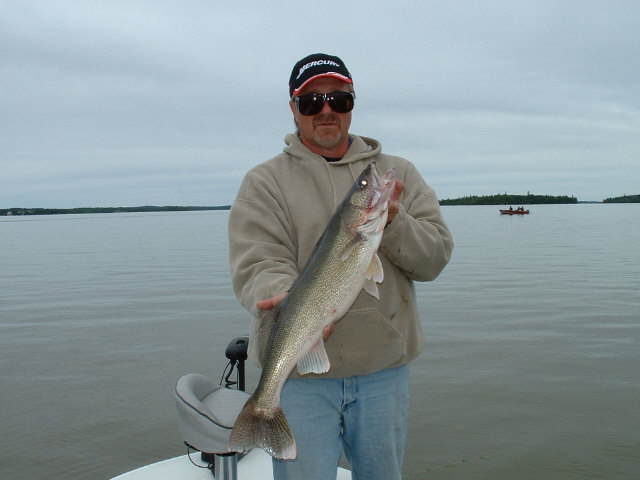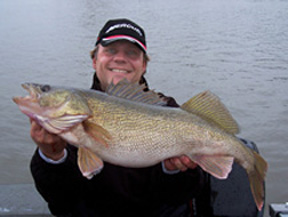|
|

Member
Posts: 22
Location: Sioux Falls, South Dakota | Missouri River water battle Rages on and on and on"
The most over looked issue is::___ Missouri reservoirs are not in danger and they are not contributing to floating the barges.____ Note that Lake of the Ozarks is at near full pool. http://odd.net/ozarks/lakecam/ Full pool is 660ft
The surface water level at the Lake of the Ozarks is measured in feet above sea level. Full reservoir is 660 feet above sea level. At full reservoir, the lake is about 110 feet deep in front of the dam. Under that is another 20-30 feet of silt and mud, and under that is bedrock. Here's an unofficial list of record lake level highs and lows since 1932:
Record high lake level was 665.45' in 1943. (5.45' above full reservoir.)
Record lake level low was 639.95' in 1948. (20.05' below full reservoir.)
Greatest one year fluctuation was 23.13' in 1948.
Average high is 660.52' (0.52' above full reservoir).
Average low is 650.97' (9.03' below full reservoir).
Average yearly fluctuation is 9.55'. (Note: Yearly fluctuations have moderated over the past ten years to less than 7 feet per year.)
So basically they been keeping their water while running Montana, North Dakota, and South Dakota dry. Some community's will have to transport water due to low Mo. River levels in South Dakota. No longer is this a fight for recreational use of the river, but has turned the corner into a fight for survival..............
From the Argus Leader_____________________________________________
States can't agree about river
Representatives argue navigation vs. recreation
BEN SHOUSE
[email protected]
published: 02/8/05
Representatives from eight states along the Missouri River, including four governors and two tribal chairmen, gathered in Sioux Falls on Monday in hopes of better sharing water. But they mainly succeeded in spelling out disagreements.
For decades, downstream states have demanded that adequate water be released in spring, summer and fall to float barges, even during drought. Upstream states and tribes have insisted they need that water for fishing, drinking and irrigation.
Gov. Mike Rounds called the meeting in hopes that continuing drought could change the terms of debate - that former enemies could band together against the consequences of drought.
But that possibility slipped away after lunch Monday, as states staked out familiar positions corresponding to their geographical locations along the Missouri River.
Gov. Brian Schweitzer of Montana, clad in jeans and cowboy boots, laid much of the blame on downstream states' selfishness.
"It seems once again that Missouri is not willing to compromise," he said. "We've had empty reservoirs, we've had fisheries in collapse, but Missouri hasn't had to share the pain."
Rounds wore a gray suit and dress shoes, as did the governors of North Dakota and Nebraska. They tried to find gray areas for compromise but were met with ambivalence from Iowa and Kansas representatives and intransigence from Missouri.
Ron Kucera of Missouri's Department of Natural Resources said changing the river's flow would hurt barge companies and the farmers who depend on them to haul fertilizer and other agricultural goods.
"I hate to tell you this, because I think you expected me to say something different, but our businessmen, our farmers need reliability and certainty," he said. "The position of our state government is we want them to be successful."
Rounds' hope for compromise was based on rules written last year in the U.S. Army Corps of Engineers master manual for determining river flows. The rules dictate that below a threshold called the "navigation preclude," the corps will not release extra water for barges, which would shut down shipping that year.
Rounds has proposed reducing flows this year to prevent that. The plan could make navigation less reliable for now but increase the chances that it would be allowed next year.
After a morning of presentations reviewing conditions in the river basin, Rounds asked the group a question.
"My question is this: Is the need for stability this year and the anticipated shutdown of navigation next year preferable to an average discharge plan that might allow for a navigation season this year and next year but perhaps in some reduced state?" Rounds said.
Another reason to avoid the preclude is that deep cuts in water releases would hurt downstream power plants, which use river water for cooling.
"I think the power producers are going to be the ones that take it in the shorts," he said.
Schweitzer spelled out yet another reason.
"Our concern is that if we don't work towards conservation yet this year, and we hit preclude, that the powerful political interests downstream would come back and say ... 'We need to re-address this politically,' and it goes back to the United States Senate."
But Kucera said Missouri suffered its share of pain last year when the new master manual raised the navigation preclude from 21 million acre feet to 31 million. Total storage is now about 34 million.
"You got almost everything, we got nothing," he said. "I'd say you won, but I understand the difficulty in going to your citizens and saying 'Look what we got' when your reservoirs are falling to such appallingly low levels."
However, he said Missouri's citizens expected the state to do everything it could to prevent harm to navigation.
One positive note came from George Dunlop, assistant secretary of the army, who announced that President Bush would request $89 million to build habitat for endangered and threatened species on the river.
But Rounds said he had hoped to find more agreement at the meeting and had not expected Missouri to resist so strongly.
"It's almost as if they're looking at it and saying, 'Well, maybe it will rain, and maybe it'll snow, and we won't have to worry about it.' And I think that's not good public policy," he said.
Reach Ben Shouse at 331-2318.
| |
| | |

Location: Rhinelander | What we need east of the Rockies through the upper midwest is snow and rain. I bet we are WAY short on winter precip here so far, and much of the snow is already gone to the thaw we had the last few days. Weird weather the last dozen years. | |
| | |
Member
Posts: 37
Location: Kansas | I dont know who reported Kansas was against it they keep draining our lakes for shipping too. We went to court a couple of years ago to stop them, and got an injunction that stalled long enough for them to get rain and leave us alone, but last year they drained three of our larger lakes and the large change in the water levels just destroyed the fisheries. Once they drained the lakes in the middle of one of our biggest droughts, to the point you could not even get a boat on the lake, It put a few businesses out of business around the lake. | |
| | |

Member
Posts: 2393
Location: Waukesha Wisconsin | Steve:
The weatherman here around the Milwaukee area just reported that we are only 1/2 inch below average for snow this winter. | |
| |
|
 Missouri River water battle Rages on and on and on"
Missouri River water battle Rages on and on and on" Missouri River water battle Rages on and on and on"
Missouri River water battle Rages on and on and on"